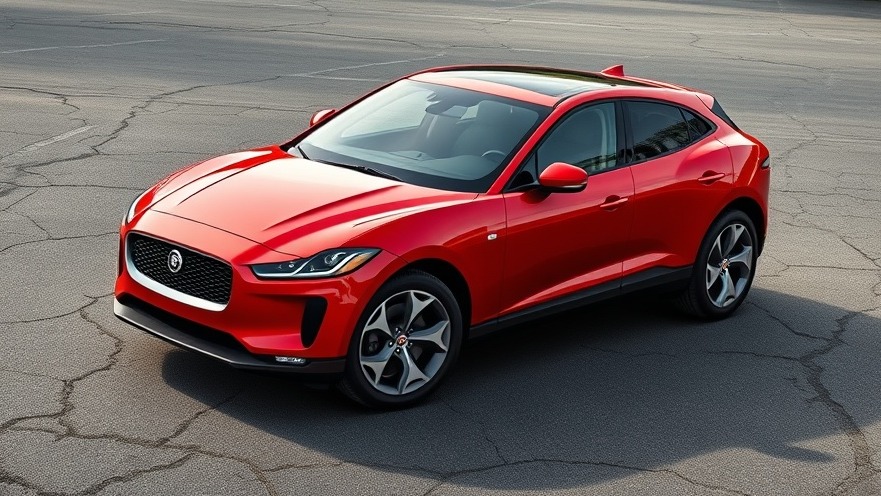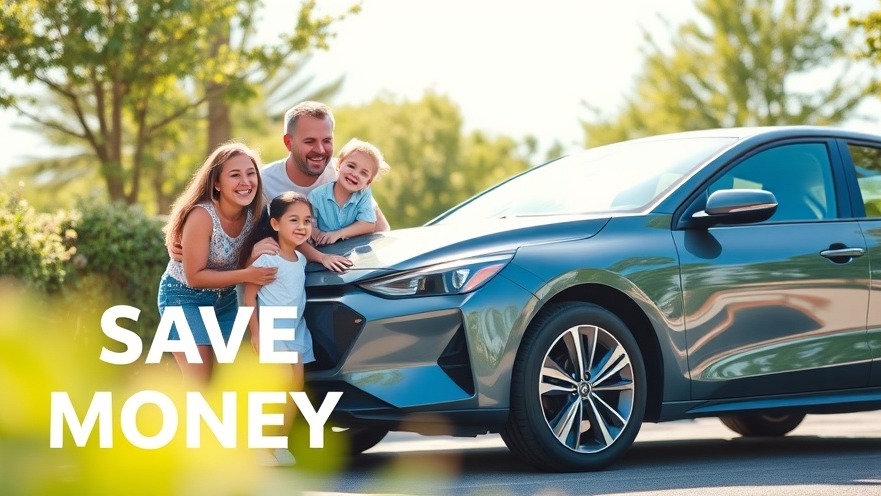
Why Some Cars Lose Value Faster Than Others
Imagine investing over $50,000 in a car only to see its value plummet to $15,000 in just a few years. This isn't merely a nightmare scenario; it's a reality for thousands of car buyers today. The rapid depreciation of certain vehicles has become a pressing concern for auto owners, especially as the market swings and consumer preferences evolve. In this overview, we will explore some of the cars that have performed terribly in the resale market, revealing valuable insights for potential buyers.
In 'These 23 Cars Are NOW WORTHLESS (DON'T Buy Them!)' we explore the alarming depreciation of various vehicles, providing insights that encourage prudent buying decisions.
23 Cars You Should Avoid: A Deep Dive Into Depreciation
According to recent analyses, some cars are leading the pack when it comes to losing their value. The most notable example is the Jaguar I-PACE, which has suffered a staggering depreciation of 73% over just five years. Additionally, the Toyota Mirai, a hydrogen-powered vehicle, has also plummeted in value, dropping a shocking 64% in two years. With numbers like these, it's essential to understand the factors contributing to such rapid devaluation.
The Role of Consumer Demand
Understanding why some cars depreciate quickly starts with consumer demand. Luxury sedans such as the Audi A8 and Audi A6 experience steep drops because buyers are fleeing towards SUVs, which offer more space and utility. In the first two years, the A8 loses over 50% of its value. Factors like high maintenance costs combined with low market demand for certain body styles can heavily influence resale worth.
Reliability and Service Costs: A Client’s Nightmare
When vehicles like the Alfa Romeo Giulia or the BMW 7 Series are cited for their low reliability ratings, it's a red flag for potential buyers. Many of these luxury cars come with hefty repair costs. With every trip to the mechanic potentially costing thousands, owners are left with diminishing returns once the warranty period is over. The general financial strain associated with repairs plays a significant role in depreciation, driving buyers away from the used market.
Technological Shortcomings: Bane for Value
Several cars on this list, like the Cadillac ELR and Nissan Leaf, showcase that tech innovation doesn't always equate to long-term value. Poorly executed tech features, such as unreliable infotainment systems, can sour buyers on the entire brand. Vehicles without proper fast-charging options or with limited electric ranges further end up discouraging potential future buyers. Rapid advancements in technology also render older models less desirable as new options flood the market.
Prominent Case Studies: Dissecting Failed Models
From compact cars to luxury SUVs, there are numerous case studies illustrating the trends in depreciation for new vehicles. The Chevrolet Bolt EUV, for instance, was an affordable alternative that quickly became a depreciation disaster, losing nearly 60% of its value within five years due to the model's discontinuation and battery recalls. Similarly, the Maserati Levante has turned into a costly status symbol with poor resale potential, primarily due to high maintenance and low reliability.
Repeat Offenders: Audi and Tesla
Audi vehicles are frequently cited in the depreciation conversation, with models such as the Audi Q5E experiencing significant declines. The Tesla Model X and Model S also feature prominently on these lists, with rapid depreciation attributed to model updates and aggressive price adjustments by the manufacturer. The challenge for these brands is maintaining desirability in a competitive electric vehicle market.
Conclusion: What Can Buyers Do?
The crucial takeaway for auto owners is to do thorough research on car options that hold their value. Knowing which brands and models are notorious for losing value can help in making more informed decisions. Instead of jumping into the excitement of a new purchase, potential buyers are encouraged to learn about the depreciation rate of their desired vehicles. Understanding what constitutes a good automotive investment can save countless dollars down the line.
 Add Row
Add Row  Add
Add 




Write A Comment